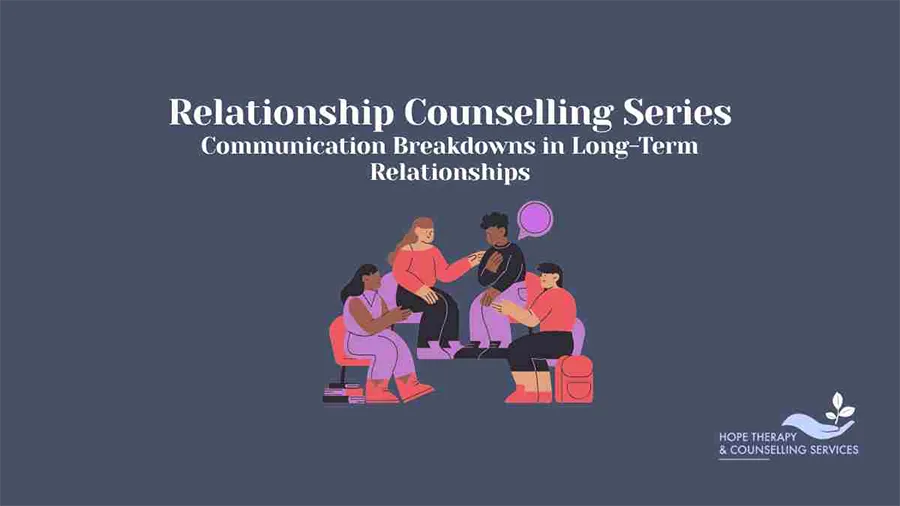In any long-term relationship, communication is the glue that holds the partnership together. It is how we share our thoughts, feelings, desires, and disappointments. Yet, even in relationships founded on love and mutual respect, communication can begin to falter. Over time, couples may find that their conversations become tense, repetitive, or simply non-existent. The resulting silence or misunderstandings can feel like emotional distance, even when both partners are physically present.
Communication breakdowns often develop slowly and subtly. A comment here, a dismissive glance there, or a habit of interrupting—small things that accumulate until speaking up feels risky or pointless. What used to be an open exchange might now feel like walking on eggshells. Arguments may erupt over seemingly trivial matters, or one partner may shut down entirely to avoid conflict. These patterns, left unchecked, can erode trust and connection.
So what causes these breakdowns? There’s rarely one simple answer. Often, it’s a combination of unresolved issues, differing communication styles, emotional fatigue, and unspoken resentment. Stress from work, parenting, illness, or financial strain can also put pressure on a couple’s ability to stay emotionally attuned to one another. Without regular moments of check-in, couples can begin to operate like co-managers of a household, rather than intimate partners.
One common trap is assuming your partner ‘should just know’ what you’re thinking or feeling. While it’s natural to hope that someone who loves you can intuit your needs, this expectation often leads to disappointment. Nobody can read minds, and over time, expecting silent understanding creates a barrier to honest expression. When partners stop sharing openly, misunderstandings multiply.
Similarly, many people avoid certain conversations for fear of conflict. If every disagreement turns into a row, it’s understandable that one or both partners might choose silence over confrontation. But avoidance rarely solves the problem. In fact, it often makes it worse. Feelings that go unspoken tend to leak out in other ways—sarcasm, passive-aggression, or emotional withdrawal. These indirect forms of expression can be confusing or hurtful to the other person, fuelling further disconnection.
Communication breakdowns can also stem from emotional wounds. If one partner has been hurt—whether by betrayal, neglect, or a pattern of criticism—they may begin to speak less and guard more. This self-protection is understandable, but it can make true connection feel elusive. Rebuilding trust often requires acknowledging past hurts and allowing space for healing before communication can flourish again.
At Hope Therapy & Counselling Services, we work with couples who find themselves stuck in these kinds of patterns. We help partners recognise not just what they are saying to each other, but how they are saying it—and why certain conversations feel so difficult. Often, we uncover that beneath the silence or shouting lies a yearning to feel heard, valued, and understood.
In counselling, we guide couples to slow down and really listen. Active listening is more than just staying quiet while the other person speaks—it means staying present, reflecting back what you’ve heard, and checking for understanding. This helps partners feel validated rather than dismissed. It also makes it safer to share vulnerable emotions, which are often the real roots of tension.
Therapy also invites couples to examine their default communication styles. Some people are direct and verbal, while others communicate more through action or tone. Some grew up in families where disagreement was dangerous, while others were raised to express emotions freely. These early influences can shape how we show up in adult relationships. Exploring these origins can foster greater empathy and reduce the temptation to blame.
Another key area is learning how to express needs and boundaries clearly. Many arguments stem not from what is said, but from what is left unsaid. One partner may feel overwhelmed and crave space; the other may feel abandoned and crave closeness. Without open communication, both can feel misunderstood. Counselling helps couples move from assumptions to clarity—articulating what they need without attacking or retreating.
In long-term relationships, communication is not a one-time skill to master, but an ongoing practice. Life stages bring new challenges—career changes, raising children, caring for ageing parents, retirement. These shifts require renegotiation of roles, expectations, and emotional connection. When couples continue to communicate intentionally, they stay aligned through the changes. When they don’t, they risk drifting apart.
It’s important to remember that even healthy relationships include moments of miscommunication. The goal is not to eliminate all misunderstandings, but to create an atmosphere where they can be addressed openly. Repairing a rupture—whether big or small—shows a commitment to growth. In therapy, couples practise how to apologise, how to forgive, and how to move forward with renewed understanding.
Some couples may also benefit from using structured communication tools, such as regular check-ins, emotion wheels, or sentence starters that reduce defensiveness. These techniques are not about being robotic—they are about creating a framework where each person feels safe to speak and be heard. Over time, this builds confidence and intimacy.
Ultimately, communication is a form of connection. When we speak from the heart and truly listen, we tell our partner: “I care enough to be open with you.” This simple act can reignite closeness, even after periods of strain. Counselling offers a space where these skills can be nurtured, practised, and strengthened.
At Hope Therapy & Counselling Services, we believe that every couple has the potential to communicate with greater honesty and care. We support couples in moving from confusion to clarity, from disconnection to understanding. Even if it feels like the gap has grown too wide, change is always possible. With compassion, curiosity, and a willingness to try again, couples can find their way back to each other—one conversation at a time.

